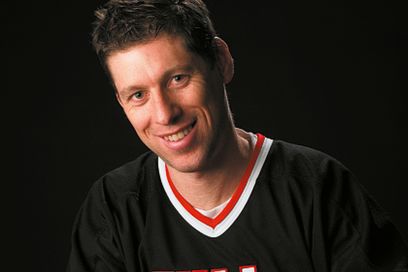
By David Grey

I play in the biggest cash games in the world. Usually, the parties are full of pros of players who know all variations of poker winning strategies. Normally, we play a mix of parts as of the hold'em, 7-Stud, of Omaha and one or more variations of Hi / Lo. The majority of the time, we play with fixed betting structures.
In a recent session, I had a long series of bad cards for which I spent most of my time in bed my hands. For my more clever opponents, it was a real joy to see me so tight. Later, in a part of 7-Stud, I was distributing an ACE as high card. My putting was relaunched, which led me to re-raise.
After which 2 players pros, with nothing more than their ante into the pot, decide to call my reraise. There's only a few hands that justify a call here. However, as I saw later the assailant in this hand, the players had called my reraise with just about anything. One had 3 assorted cards and the other, a pair average badly kicked.
What did these players? Hard to say, but I guess that for one of them, the desire of gambler took over on the right. While it may be paid in certain situations, here it was not one. Maybe that the other player has expressed that it might me outplayer (NDT: dominate a player by the quality of his game) in this hand.
In conclusion, none of these two strategies n makes sense. My reraise made this little profitable spot for gambler. I said have a pair of ACEs and it would have been very difficult to get out of the pot on a bluff.
I believe that this situation places emphasis on a few mental traps that sometimes bothers advanced players. More a player improves his game, more he sees opportunity to make money, and this, with many more hands. But this can sometimes become a slippery slope if the player in question imagines be able to monetize all its starting hands.
This is not the case particularly in parts with fixed limits. Even in the highest limits, the benefit of good players generally comes in their ability to choose good starting hands. If you do not comply with this rule, it will be almost impossible to play profitably. Your nifty little games and your good decisions during a hand cannot overcome the fact that you have poorly chosen your starting hands. If you invest money in a pot while you should fold, you'll lose money in the long term. It is not discussed.
If you are in a past where it's not going particularly well, take a step back and ask yourself if you play good starting hands. Review the other hints from the pros at Full Tilt Poker. Jennifer Harman wrote an excellent article on the subject of starting hands in Stud-8, Omaha-8, Razz and Perry Friedman wrote another interesting on decisions on the 3rd street at 7 - Stud.
Always remember that in a part of boundary, the selection of hands is the basis of your game. You cannot build a solid game on a fragile Foundation.

I play in the biggest cash games in the world. Usually, the parties are full of pros of players who know all variations of poker winning strategies. Normally, we play a mix of parts as of the hold'em, 7-Stud, of Omaha and one or more variations of Hi / Lo. The majority of the time, we play with fixed betting structures.
In a recent session, I had a long series of bad cards for which I spent most of my time in bed my hands. For my more clever opponents, it was a real joy to see me so tight. Later, in a part of 7-Stud, I was distributing an ACE as high card. My putting was relaunched, which led me to re-raise.
After which 2 players pros, with nothing more than their ante into the pot, decide to call my reraise. There's only a few hands that justify a call here. However, as I saw later the assailant in this hand, the players had called my reraise with just about anything. One had 3 assorted cards and the other, a pair average badly kicked.
What did these players? Hard to say, but I guess that for one of them, the desire of gambler took over on the right. While it may be paid in certain situations, here it was not one. Maybe that the other player has expressed that it might me outplayer (NDT: dominate a player by the quality of his game) in this hand.
In conclusion, none of these two strategies n makes sense. My reraise made this little profitable spot for gambler. I said have a pair of ACEs and it would have been very difficult to get out of the pot on a bluff.
I believe that this situation places emphasis on a few mental traps that sometimes bothers advanced players. More a player improves his game, more he sees opportunity to make money, and this, with many more hands. But this can sometimes become a slippery slope if the player in question imagines be able to monetize all its starting hands.
This is not the case particularly in parts with fixed limits. Even in the highest limits, the benefit of good players generally comes in their ability to choose good starting hands. If you do not comply with this rule, it will be almost impossible to play profitably. Your nifty little games and your good decisions during a hand cannot overcome the fact that you have poorly chosen your starting hands. If you invest money in a pot while you should fold, you'll lose money in the long term. It is not discussed.
If you are in a past where it's not going particularly well, take a step back and ask yourself if you play good starting hands. Review the other hints from the pros at Full Tilt Poker. Jennifer Harman wrote an excellent article on the subject of starting hands in Stud-8, Omaha-8, Razz and Perry Friedman wrote another interesting on decisions on the 3rd street at 7 - Stud.
Always remember that in a part of boundary, the selection of hands is the basis of your game. You cannot build a solid game on a fragile Foundation.




